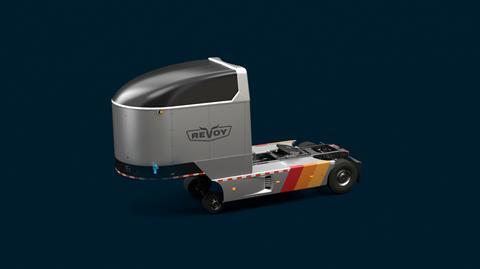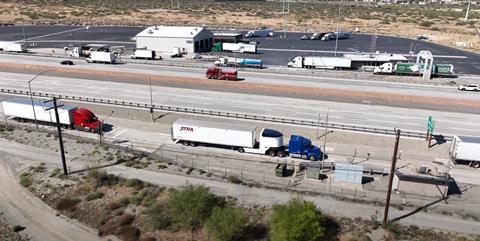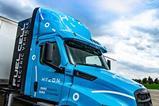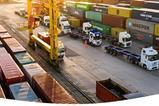Revoy, a startup specialising in sustainable transportation solutions, has developed a groundbreaking technology called the Revoy EV, designed to convert existing diesel semi-trucks into hybrids quickly and efficiently. The innovative system reduces emissions by up to 80%.

The new Revoy EV, is a new battery electric modular vehicle that fits between the tractor unit and semi-trailer, and is aimed at the US commercial vehicle sector where there is no overall length restrictions. The change-over process involves a five-minute battery swap at dedicated swapping stations strategically located along the truck’s route. A pre-charged battery trailer automatically aligns with the truck, fitting seamlessly between the cab and the semi-trailer.

According to Ian Rust, CEO and founder of Revoy, this process is faster than refueling a diesel tank. During operation, the attached battery trailer enhances the truck’s power, resulting in emission reductions ranging from 70% to 80%. Revoy estimates that this innovative system can save shipping companies up to $25,000 per truck annually on fuel costs. ”We only charge out customers based on the diesel we save,” Rust explained. There are no current plans to bring the concept to Europe, he added.
Unlike fully electric heavy-duty trucks that face challenges related to cost and charging infrastructure, Revoy’s solution integrates seamlessly into existing shipping operations. By charging batteries during periods of low electricity costs, Revoy competes favourably with diesel prices. The company owns the Revoy EVs, allowing trucking companies to pay only for the service rather than the vehicle itself.
Revoy’s technology offers several advantages beyond emission reduction and fuel efficiency. It enables trucks to accelerate faster, enhancing safety during manoeuvres such as merging onto highways. The battery trailer also features regenerative braking, enabling the truck to stop 30% faster, says Rust. Additionally, the system incorporates advanced safety features such as blind spot detection, automatic reversing, and auto-correction, contributing to overall road safety.
The startup, after three years of research and development, is now in production and currenlty has four vehicle in operation, with plans to expand its swapping stations in Texas, Arkansas, California, and Oregon.


















